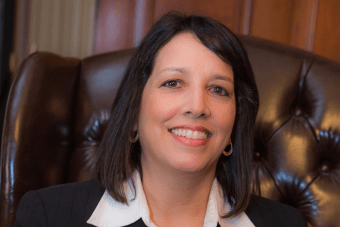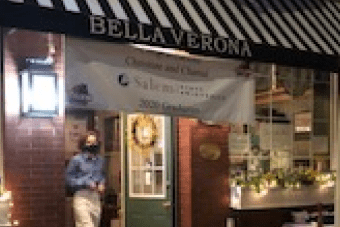It was Sunday, June 6, 2020. It had been nearly three months since Sheila and husband Giorgio Manzana had been forced by COVID-19 mandates to shut down indoor dining at Bella Verona Italian restaurant, an intimate, 25-year-old, tin-ceilinged Essex Street institution in Salem, Mass.
Outdoor dining was scheduled to open the following day, and Sheila had made clear to a representative of a Salem recovery task force – Rappaport Public Finance Fellow Alex Khoury – that her restaurant’s readiness for its first foray into an open-air experience would likely make or break it for the long term. In the Manzana’s case, there was precious little space on the restaurant’s adjacent sidewalk, meaning some form of intervention from the city would be critical.
So when she saw a text from the Mayor’s office with roughly 24 hours until go time, Sheila opened it quickly.
“We want to give you the whole street,” she remembers reading.
She woke her husband from an afternoon nap and read him the text.
“You must not be reading that right,” Giorgio said.
“Well,” she said. “I think I am.”
She was. Members of the Salem Department of Public Works soon arrived on Essex Street to partition off the space. And following a mad dash of shopping for as many tables and chairs as Sheila could get her hands on to fill what would now be – thankfully – an 800-square-foot space, Bella Verona opened at 4 p.m. on Monday afternoon with 45 patrons in 45 seats.
The scene was emblematic of a hands-on, personalized response to the Salem small business community that buoyed the city through the critical summer months. Khoury, a Rappaport Fellow who had recently earned a master’s degree from the Harvard Kennedy School, was part of what Mayor Kim Driscoll called her “Dream Team,” a subgroup of Salem’s Economic Development Recovery and Revitalization Task Force.
It’s mission: to diagnose needs and offer a soft landing to local businesses struggling through the pandemic.
“We called it, Saving Main Street,” Driscoll said. “There is no actual street in Salem called Main Street, but the idea was the central business core. The idea was, can we keep businesses alive?”





